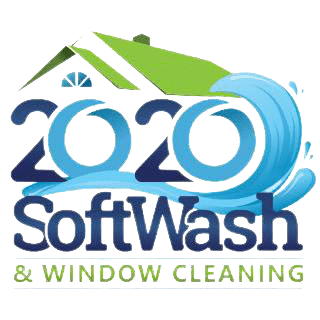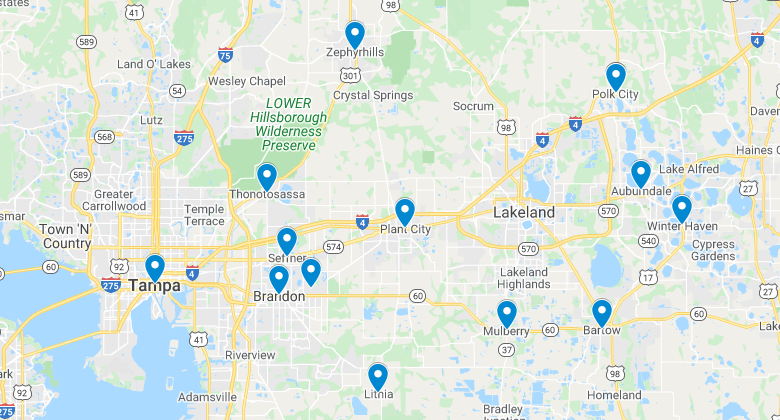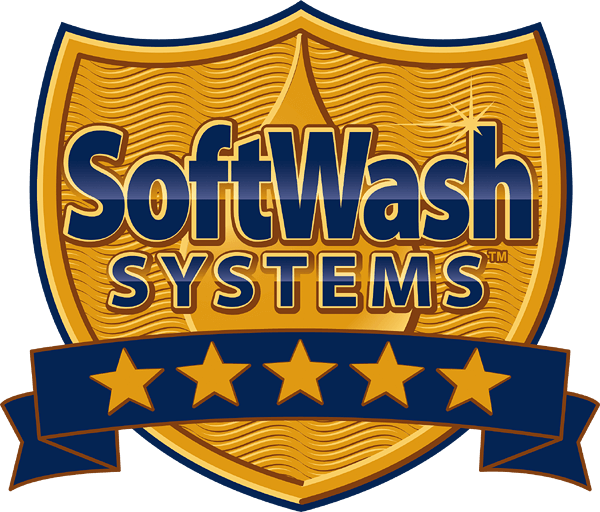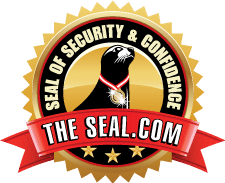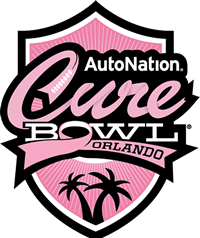Paver Sealing Lakeland Fl
South Central Florida's
Top Rated
Paver Sealing
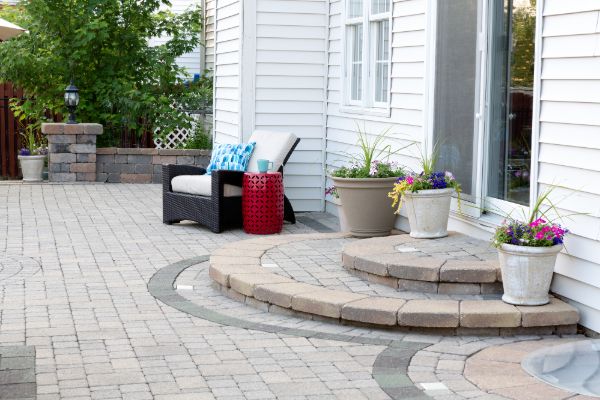
PAVER SEALING
One of our specialties is cleaning and sealing concrete pavers on residential and commercial projects in Polk, and Hillsborough counties. We work on both new paver installations as well as bringing new life to old pavers. When you choose to work with us, you get the experience of a company that has applied thousands of square feet of sealer to various paver driveways, patios, walkways, pool areas, courtyards, etc. The first step in any paver sealing project is to clean the surface of any stains, dirt, or debris that may be present. Our technicians use a professional pressure washing system. Power wash all paver areas to be sealed. Any oil spills or other heavy stains are chemically treated during the cleaning process. Note (we utilize some of the best chemicals on the market however, depending on how long a stain has dwelled on a surface sometimes not all of the stain will disappear completely).
Benefits of Our Lakeland Paver Sealing
There are several benefits to sealing your concrete pavers. In addition to protecting the surface from stains, many sealers can dramatically improve the appearance of your home or business. A “wet” look or high-gloss sealer brings out the colors of each paver. For those individuals and companies desiring less of a visual impact there are “satin” and “natural” finishes that provide the same great protection while minimizing the change in appearance. Here’s a quick summary of the aesthetic and functional benefits you can expect from sealing your pavers:

APPEARANCE
Enhance the appearance of your hardscape… sealers are able to bring out and intensify the natural paver colors.

MAINTENANCE
Create a surface that improves maintenance efforts by making it faster and easier to clean.

PROTECTION
Sealed surfaces are more resistant to undesired stains such as oil, food/drink spills, etc. Some sealers also may protect against salts, acids, and other corrosive substances.

PRESERVATION
A UV-rated sealer will not yellow as it protects the paver colors from fading in the harmful Florida sunlight.

STABILIZATION
Reinforce pavement integrity by stabilizing joint sand which also deters weed growth and insect activity.

VERSATILITY
The same sealer used on your pavers can be used on other areas in your hardscape including concrete, exposed aggregate, stone, etc.
Understanding Sealers
● Helps protect the surface. Sealer keep spills from fully penetrating into the surface. This does not mean that surfaces cannot get discolored from leaves, oil, food & drink, etc. Sealers make it easier to clean these stains.
● Helps slow down fading from the sun.
● Helps in locking in sand joints.
● Helps with color enhancement. Enhancement sealers make the surface color pop again. Clear-coat sealers do not have any impact on color of the surface.
● Some sealers have algae and mold inhibitors to help slow down this growth. It cannot totally prevent mold and algae (you cannot beat Mother Nature.)
● Sealers, if using a quality water-based sealer, do not make surfaces slippery. If slipperiness is still a concern, a non-slip additive can be added in.
● Sealing does not last forever. On average sealers need to be reapplied every three years. The amount of direct sunlight the surface receives is the biggest determinant of the sealer’s longevity.
● Sealers greatly improve the look of your surface, however that does not mean they will look brand new. Sealing helps old pavers come to life and protect for the future.
The biggest part to how a surface will look when completed is how porous the surface itself is.
● For Firerock pavers, travertine, and limestone we highly suggest using clear-coat sealers to protect.
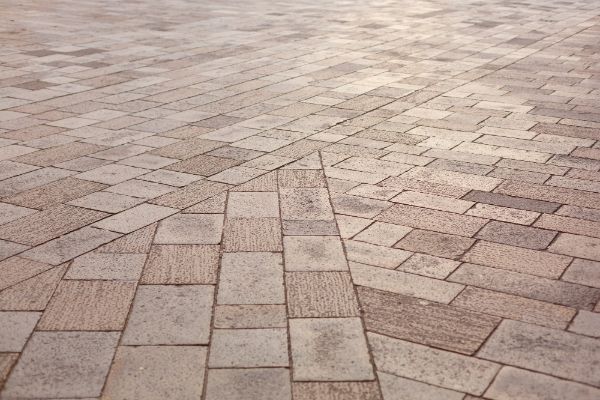
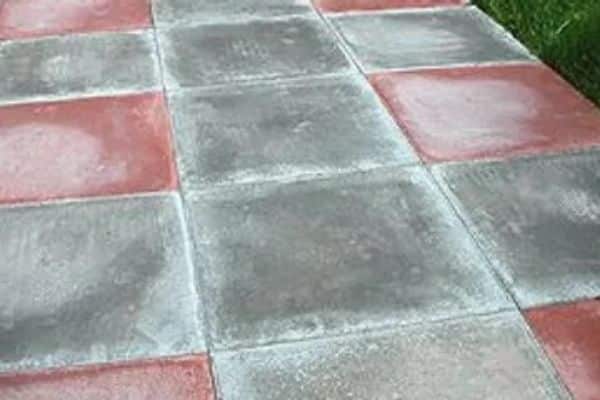
Understanding Cleaning
● Efflorescence (white milky salt) is a natural phenomenon that occurs in concrete pavers, clay pavers, various forms of stone, travertine and other materials. It can happen anytime during the life of the material. 20/20 will make every effort to remove this but cannot guarantee complete removal nor can we promise that it will not reoccur in the future.
● While a majority of stains can be removed there are times that we can only lighten the stain. This will depend on what caused the stain how long it has been on the surface, and the porosity of the surface.
● Depending on the type of sealer applied by previously used companies, it is possible that your surface will need to be stripped in order to properly clean. If that is the case we will explain in full to you the costs involved.
● Sprinkler systems and hoses should not be used 24 hours prior to or after our services. High pressure water is used while cleaning and any grass and vegetation surrounding the area is likely to be saturated.
● Pool cleaning systems must be shut off prior to service to ensure they do not spray water onto the work area. When pool decks are cleaned, there is the possibility of sand getting into the pool. This is generally corrected by running pool cleaners and can be done 24 hours after sealing is completed. We make every effort to keep as much out as possible.
Restore Your Property Instantly!
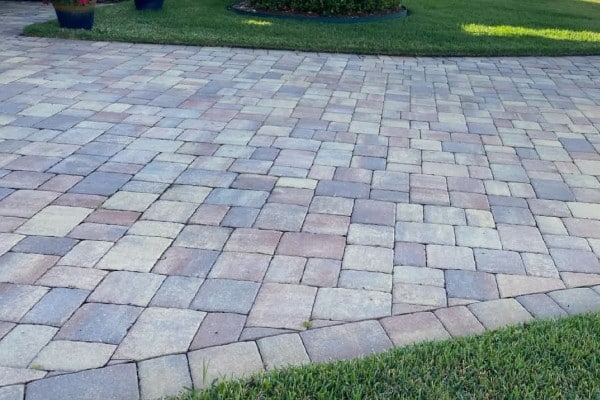
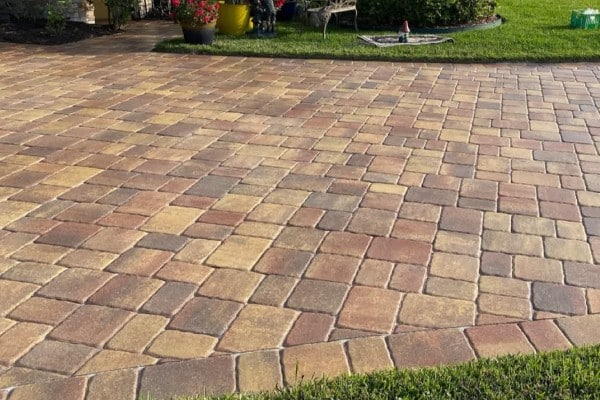
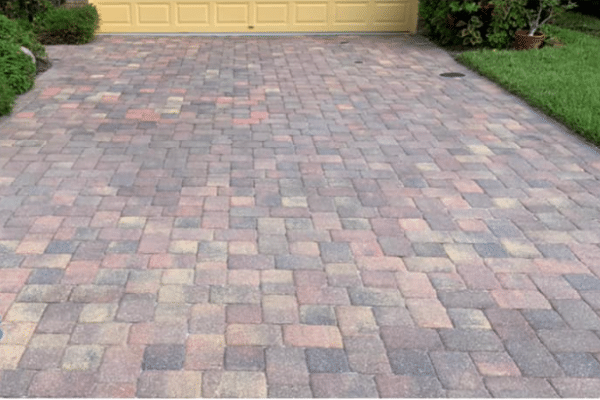
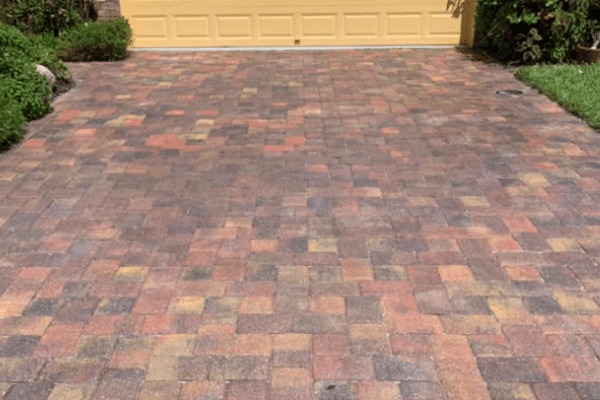
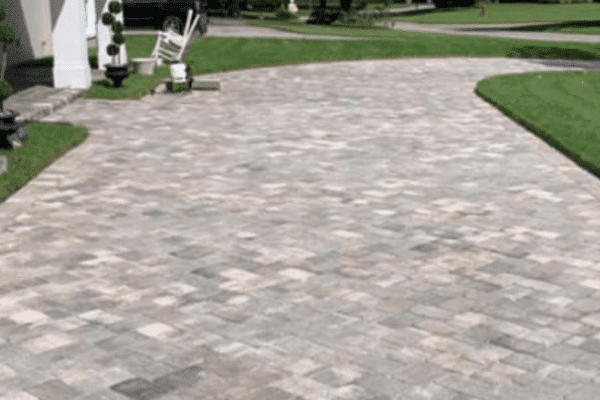
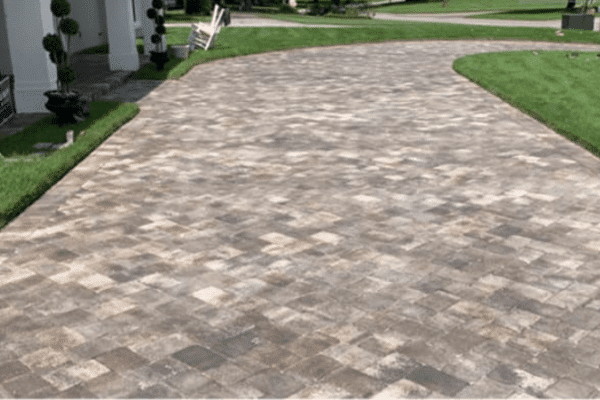
We Want You To Know...
We're Comitted To Your Happiness
Super Awesome benefits for you to enjoy...

Fast
Quotes
Affordable
Prices
Licensed
& Insured
100%
Satisfaction

Warrantied
Service
Frequently Asked Lakeland Paver Sealing Questions
We will do our best to remove all stains from your paver surface. Many times we are able to completely remove stains. Other times we are only able to lighten them. It just depends on how long the stains have been on the surface and how far down they have penetrated into the pavers.
Generally, most manufacturers recommend no foot traffic for 24 hours after sealing and 48 hours before driving on the surface.
Typically, we ask that you clear all furniture from the area before we arrive. If that is not possible, we will be happy to clear the area for you for an additional fee.
On average, a high quality paver sealer will last 3 years. Those that are not exposed to the sun can last up to 7 years. Our Florida climate impacts how long the sealer lasts. Longevity depends on weather conditions, foot traffic or vehicular traffic and really how much sealer is applied.
Our Core Exterior Cleaning Services
Ready To Restore Your Home?
